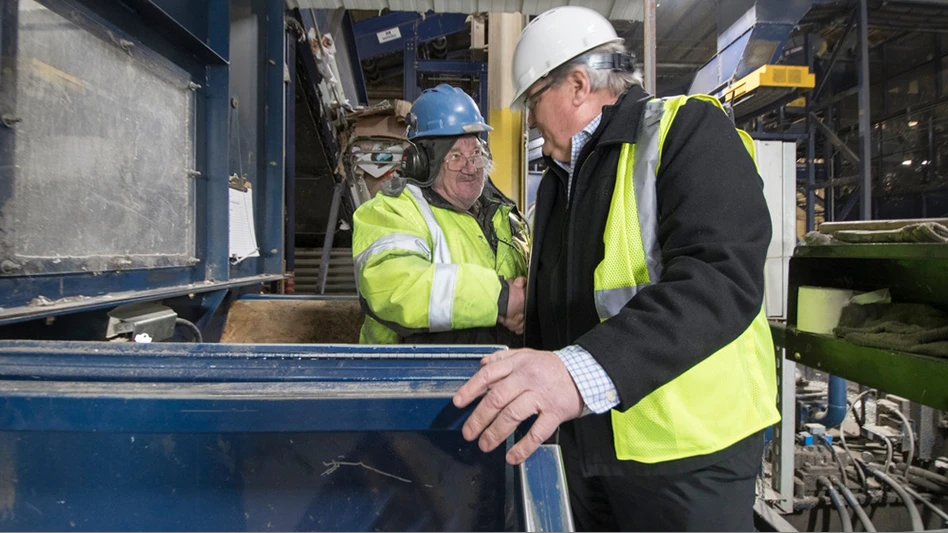California Governor Edmund G. Brown Jr. signed SB 1383 by Senator Ricardo Lara (D-Bell Gardens), which establishes tough restrictions on destructive “super pollutants,” or short-lived climate pollutants, including black carbon, fluorinated gases and methane. If followed worldwide, these acts are designed to help cut the projected rate of global warming in half by 2050.
"Cutting black carbon and other super pollutants is the critical next step in our program to combat climate change," said Governor Brown at a signing ceremony near a Long Beach, California, playground bordered by oil refinery smokestacks. "This bill curbs these dangerous pollutants and thereby protects public health and slows climate change."
SB 1383 requires a 50 percent reduction in black carbon and 40 percent reduction in methane and hydrofluorocarbon (HFC) from 2013 levels by 2030. Sources of these super pollutants include petroleum-based transportation fuels, agriculture, waste disposal and synthetic gases used in refrigeration, air conditioning and aerosol products.
"The super pollutants addressed in this bill—black carbon, methane and HFC gases—are powerful climate forcers that have a profound effect on climate change and global warming," says Lara. "They also have detrimental effects on public health. This bill represents a unique opportunity to balance our global vision for the future with a much more local and immediate perspective. With these bold and ambitious goals, we'll continue to set the standard for climate policy worldwide. And most importantly, those changes will be felt right here in California and reflected in the health of our children and future generations to come."
Super pollutants have more potent heat-trapping effects but remain in the atmosphere for a shorter time than carbon dioxide. Removing one ton of diesel black carbon from the atmosphere is equivalent to removing 1,000 to 2,000 tons of carbon dioxide pollution. Worldwide, methane emissions alone are responsible for approximately 20 percent of current global warming.
"The policies that California is implementing, if achieved worldwide, would cut the expected rate of global warming in half by 2050, save millions of lives, avoid millions of tons of crop losses per year and slow dangerous climate feedbacks such as melting ice caps and rising sea levels," says San Diego Scripps Institution of Oceanography Distinguished Professor Dr. Veerabhadran Ramanathan. "The benefits of such a policy can far exceed the cost of enacting it."
California's ongoing efforts to improve air quality and address climate change have already led to reductions in super pollutants, and have provided a strong foundation for today's legislation. SB 605 by Senator Lara, signed by Governor Brown in 2014, directed the California Air Resources Board to develop a comprehensive strategy for addressing super pollutants, which ultimately included reduction targets now set forth in this legislation. During last year's Climate Week in New York, the governor gave remarks at an event hosted by the United Nations Environment Program, where he outlined goals for cutting super pollutants that are now codified by today's legislation.
"Cutting black carbon and other super pollutants is the critical next step in our program to combat climate change," said Governor Brown at a signing ceremony near a Long Beach, California, playground bordered by oil refinery smokestacks. "This bill curbs these dangerous pollutants and thereby protects public health and slows climate change."
SB 1383 requires a 50 percent reduction in black carbon and 40 percent reduction in methane and hydrofluorocarbon (HFC) from 2013 levels by 2030. Sources of these super pollutants include petroleum-based transportation fuels, agriculture, waste disposal and synthetic gases used in refrigeration, air conditioning and aerosol products.
"The super pollutants addressed in this bill—black carbon, methane and HFC gases—are powerful climate forcers that have a profound effect on climate change and global warming," says Lara. "They also have detrimental effects on public health. This bill represents a unique opportunity to balance our global vision for the future with a much more local and immediate perspective. With these bold and ambitious goals, we'll continue to set the standard for climate policy worldwide. And most importantly, those changes will be felt right here in California and reflected in the health of our children and future generations to come."
Super pollutants have more potent heat-trapping effects but remain in the atmosphere for a shorter time than carbon dioxide. Removing one ton of diesel black carbon from the atmosphere is equivalent to removing 1,000 to 2,000 tons of carbon dioxide pollution. Worldwide, methane emissions alone are responsible for approximately 20 percent of current global warming.
"The policies that California is implementing, if achieved worldwide, would cut the expected rate of global warming in half by 2050, save millions of lives, avoid millions of tons of crop losses per year and slow dangerous climate feedbacks such as melting ice caps and rising sea levels," says San Diego Scripps Institution of Oceanography Distinguished Professor Dr. Veerabhadran Ramanathan. "The benefits of such a policy can far exceed the cost of enacting it."
California's ongoing efforts to improve air quality and address climate change have already led to reductions in super pollutants, and have provided a strong foundation for today's legislation. SB 605 by Senator Lara, signed by Governor Brown in 2014, directed the California Air Resources Board to develop a comprehensive strategy for addressing super pollutants, which ultimately included reduction targets now set forth in this legislation. During last year's Climate Week in New York, the governor gave remarks at an event hosted by the United Nations Environment Program, where he outlined goals for cutting super pollutants that are now codified by today's legislation.
Latest from Waste Today
- Defunct electronics recycling companies ordered to pay $3M for hazardous waste violations in Ohio
- Tacoma, Washington, launches smart camera technology pilot
- Pride Disposal sees efficiency gains with Hydrotex BIO-XPL hydraulic fluid
- Techbros launches AI-integrated electronics processing facility
- Understanding interchange optimization
- Account Updater: Keeping customer credit cards always up-to-date
- Understanding credit card fees
- CDRA names new executive director





